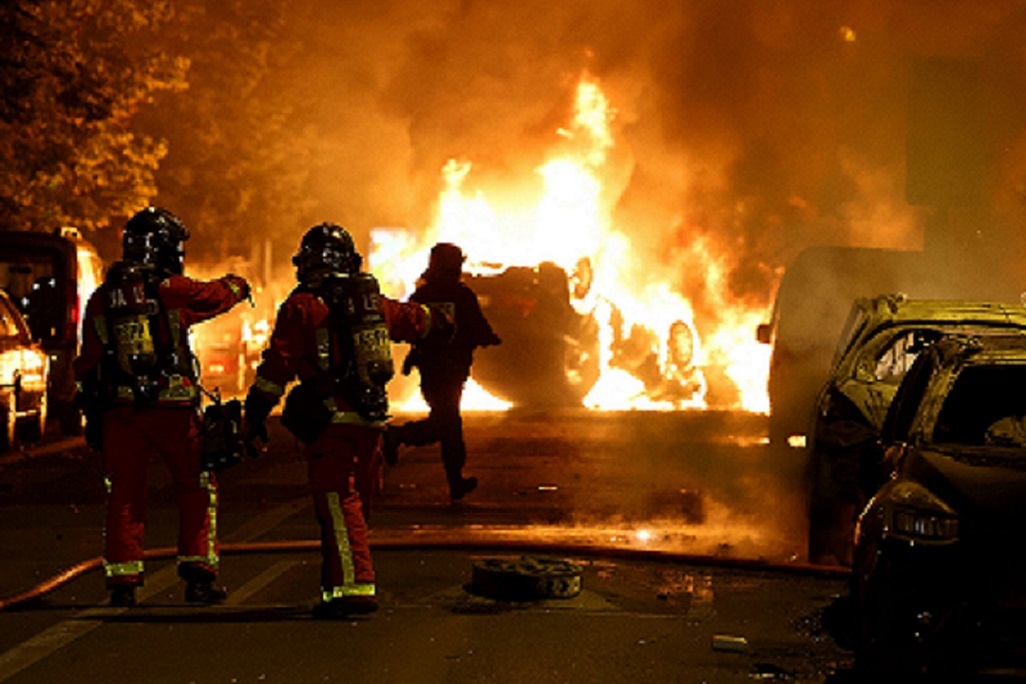The recent incident in France has dented the country’s image and could even implicate international relations in future.
The death of Nahel Merzouk is a tragic event that has sparked strong reactions in France and had repercussions on the country’s international image. Nahel Merzouk, a 17-year-old Franco-Algerian, was killed by a police officer in Nanterre, Hauts-de-Seine, on June 27, 2023, following a refusal to comply. According to the police’s version, the officers invoked self-defence, claiming that Nahel posed a threat to their lives or physical integrity. However, a video shared on social media contradicted this version, showing the officers next to the car driven by the young man, and one of them firing at close range as the vehicle was driving away.
This event has caused a strong stir in France and reignited the debate on police violence and the issue of racism within the French police. Numerous riots broke out across the country in the days following Nahel’s death. Protesters expressed their anger and indignation at this act of violence. The police officer responsible for the deadly shot was charged with voluntary homicide and placed in custody on June 29, 2023.
It is worth noting that this event takes place in the context of social tensions and debates around the use of firearms by the police in France. In February 2017, the law on the use of firearms by police officers was modified, allowing them to use their firearms against a vehicle whose occupants are likely to pose a threat to their lives or physical integrity, or to the lives or physical integrity of others, during their escape. This modification of the law has been criticized by human rights groups, who argue that it dangerously expands the legal framework allowing the police officer to use their firearm. Statistics have shown an increase in cases of fatal police shootings of non-compliant drivers since the law came into effect.
The death of Nahel Merzouk and the subsequent riots have significant consequences on France’s international image, highlighting the issues of police violence and racism within law enforcement agencies. These events raise crucial questions about the population’s trust in the authorities and the need for a profound reform of the French policing system.
The influence of a country’s internal politics on its security and its impact on its diplomatic image and international organizations are crucial subjects of study in the field of international relations. The political and security actions of a state often have direct repercussions on its reputation and position on the international stage. In this essay, we will examine the importance of a country’s internal politics in terms of security, with a focus on its diplomatic impact and consequences within international organizations.
A country’s internal politics plays an essential role in managing national security. The decisions made by a government regarding law enforcement, counterterrorism efforts, border protection, and internal crisis management have a direct impact on how other states perceive that country. An effective domestic security policy can enhance stability and the confidence of foreign partners, while a flawed domestic policy can raise concerns and weaken a country’s diplomatic credibility.
On the diplomatic front, a country’s image is closely linked to its domestic security policy. A state’s actions aimed at ensuring the security of its citizens and maintaining internal order can be seen as a reflection of its ability to assume broader responsibilities on the international stage. A country that manages to maintain stability and ensure the security of its population is more likely to be considered a reliable and trustworthy partner by other states. Conversely, a chaotic domestic policy or one marked by human rights violations can harm a country’s international image and attract criticism from the international community.
Moreover, a country’s domestic security policy can have repercussions within international organizations such as the United Nations. The decisions made by a government regarding domestic policy can influence its ability to promote the country’s domestic security policy has a significant impact on its diplomatic image and position on the international scene. This can be seen in the relationships and support that countries receive in international forums. Countries whose domestic policies are aligned with the values and objectives of the United Nations are more likely to benefit from increased diplomatic support in the General Assembly and the Security Council. On the other hand, countries whose domestic policy is criticised for human rights violations or aggressive actions may face resistance and condemnation from other Member States.
The importance of secrecy in international relations and diplomacy should also be emphasized. Classified information and confidential negotiations are often seen as indispensable tools for conducting sensitive discussions and reaching diplomatic agreements. However, secrecy can also have adverse effects if used improperly, resulting in a lack of transparency and increasing distrust among States.
With regard to the current management of the crisis caused by the death of this young Frenchman, it is crucial that the State choose an appropriate response. Too firm could lead to accusations of totalitarian statehood, while too lax a reaction could be seen as a sign of laxity. In this case, the French public administration’s response appears to undermine its diplomatic image. The President has always sought to be at the forefront of burning issues, such as Ukraine and China-Europe relations. In these cases, he received different treatment than he received when he discussed the European plan with Ursula von der Leyen and President Xi Jinping.
France’s identity and civilization crisis crystallizes in this tragic but daily occurrence in a society that is becoming more Americanized in terms of debate of ideas, with racial tensions. France had eliminated the idea of different races, but anti-racial movements restored it. Moreover, police controls, once muscular but not tragic, are becoming tragic. The next step could be the equipment of police officers with body cameras (GoPro) and onboard cameras (dash-cam). France is thus adopting an all-out model from the United States, with the resulting tensions.
In conclusion, it is clear that a country’s domestic policy on security and crisis management has important implications for its diplomatic image and international relations. It is essential that States carefully consider the consequences of their political and security actions, both domestically and internationally, in order to preserve their reputation and promote positive international relations.
Disclaimer: The views and opinions expressed by the author do not necessarily reflect the views of the Government of India and Defence Research and Studies
Image Courtesy: CNN





